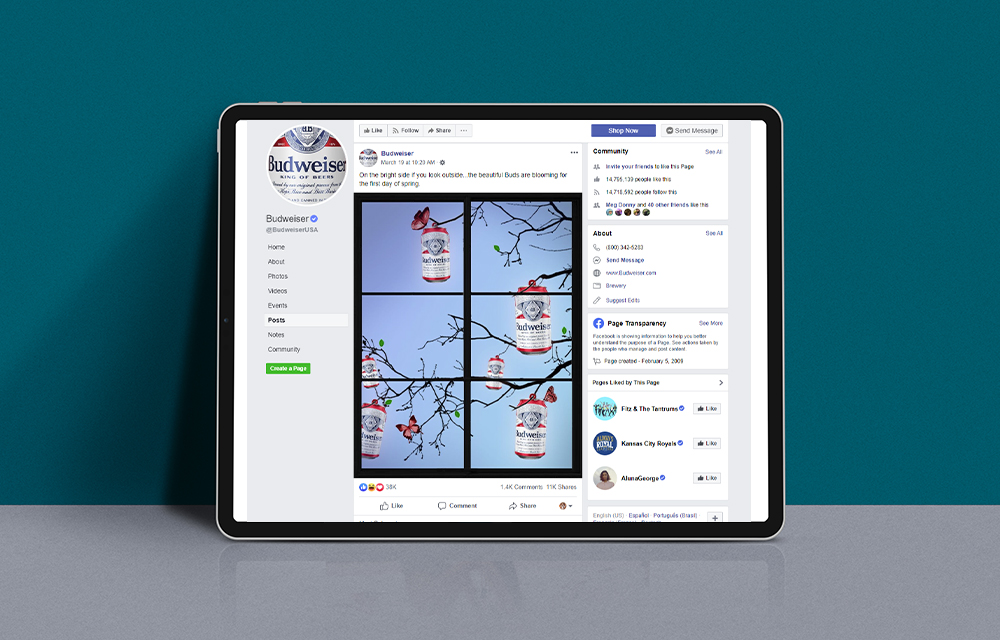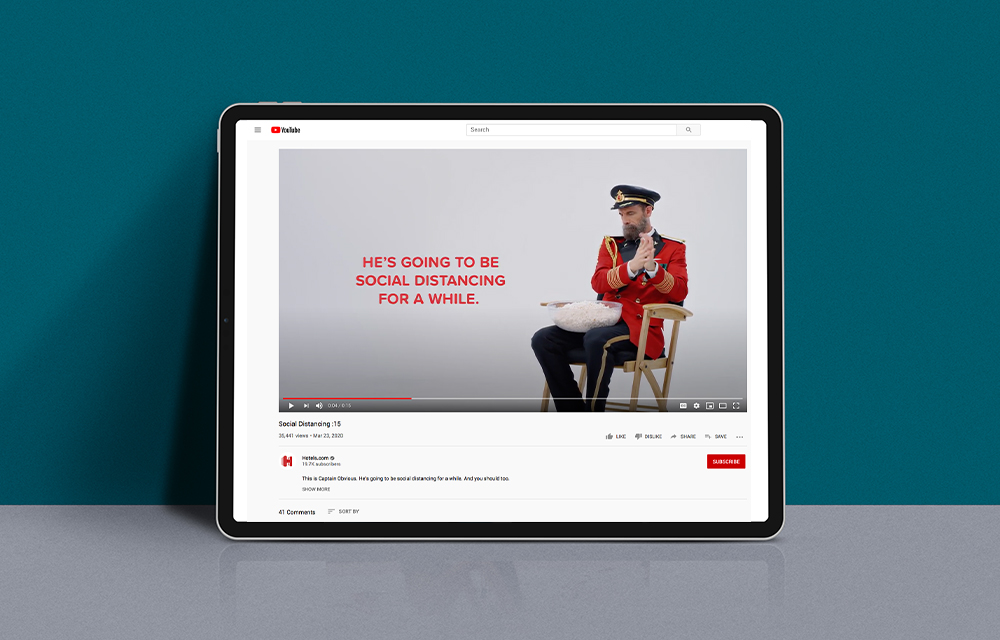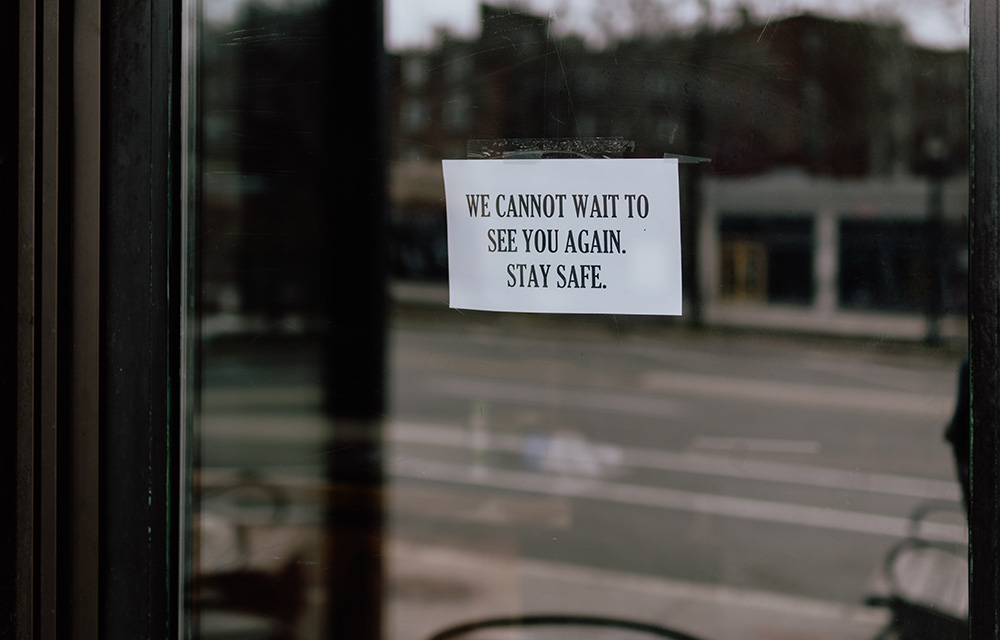It feels as though the coronavirus crisis has brought our world to a sudden screeching halt. Sporting events have been canceled. Travel restrictions have been put into place. The public has hunkered down. The economy is at a standstill. So it’s no surprise that the gut instinct for business owners when it comes to their marketing strategy is to follow suit: to simply freeze all efforts, whether it’s email campaigns, paid social campaigns, or organic blog content that lives on your website. After all, it’s important to control costs during an economic downturn. Nor do you want to come off as insensitive or out-of-touch to your consumers.
But, as we pointed out in our recent post, Your Brand’s Role on Social Media amid Coronavirus, going dark with your marketing is a major misstep. The name of the game is about pausing your current strategy and pivoting to make your brand valuable during this crisis (jump down to the article’s section titled “Pivot & Post with Purpose” to learn more). But if you still don’t feel ready to press play again, we give you three good reasons why you should.
History as Proof
During global crises, like recessions, consumers naturally reduce their spending, which leads to businesses, as their sales drop, having to cut their own costs wherever they can. But numerous case studies over the years prove that the businesses that retain their marketing/advertising budget or change their marketing/advertising message to adapt to the current economy are the ones that survive.
We here at Hawthorn work closely with a lot of hotels and resort collections, so we’re going to reference one study in particular: Winners and Losers during the Great Recession: The Positive Impact of Marketing Expenditures, which took a look at the US hotel industry during the most recent financial crisis of 2008.
While the entire lodging industry obviously felt the effects of the last recession, the intention of this 2015 study was to shed light on what hotels – those that really hurt versus those who emerged with a stronger cash flow – did differently. After identifying what were considered 100 “winning” hotels and 106 “losing” hotels (based on high or low financial performance during the lowest point of the recession), the study compared all the different costs cut and efforts to increase profits as the recession wore on. In the end, the one glaring factor that separated the winners from the losers? The winners continued to invest in their marketing; the losers didn’t. And the winners didn’t just outperform their competitors in the short-term, but long-term as well. According to the report, “this data leads to the conclusion that firms that ‘invest’ in marketing, especially in tough times, can achieve a payoff […] and will realize gains beyond just the short-term.”
The takeaway? How a business handles its marketing during a crisis clearly affects performance after the crisis. The ones who take a machete to the marketing budget – rather than a scalpel to carefully adjust strategies – suffer more and longer. And who wants to come out of this stuck at the bottom?
OUR WORK
Build A Website Powerhouse
Within the first three months, this new site saw a 200% increase in inbound leads
People Are on Their Phones Constantly Right Now
Everyone from comedians David Spade and Sarah Silverman to New York Times tech and internet culture correspondent Nellie Bowles have reported an undeniable surge in their personal weekly screen time in the last few weeks (iPhone users can thank their Sunday Screen Time Alerts for that!).
No, we can’t say this would also be the case during other types of crises, but in the case of this pandemic, it’s obviously a direct result of social distancing. People stuck at home are actively toggling between social platforms, seeking out content to consume that passes the time. So, while it feels odd to say it, this is actually an opportunity to get your brand in front of more eyes than ever. And by using your brand to give them valuable moments of zen or escapism, it makes your company all the more valuable to them.
Take, for example, Budweiser. In a time when social engagement is down across the board (because of brands pressing the pause button), the beer conglomerate reports an increase in its social engagement for March of 2020. That’s because they never stopped posting…and what they’re posting, people are responding to. In fact, their top two performing posts for the month both took place on March 19: The first was a punny post on Facebook that generated 38,000 likes, 1,400 comments, and 11,000 shares; the second – another Facebook post, which asked followers to post the names of people who are “going above and beyond right now” in the face of the crisis – saw 28,000 likes, 3,700 comments, and 1,700 shares.

No, you can’t carry on with business as usual with your social presence (note: you don’t see Budweiser suggesting to sling back a Bud with your bros in either of these posts). Instead, your new strategy should work to solidify relationships and build your brand as one consumers can trust…because they’re actively listening right now. That way, when recovery begins, you’ll be in a better place to convert customers.
OUR WORK
Dive Into Successful Social Media Marketing
See how we reached over 900,000 users through strategic social tactics
Your Brand Has the Power to Help This Crisis
Unfortunately, there’s simply nothing that can be done to get more heads in beds, events booked, or tickets purchased right now. So the best thing companies – everyone from hotels and wedding venues to DMCs and airlines – can do for the time being is offer support in any way they can. Because it’s the only way we’ll end this pandemic sooner than later.
Hotels.com is one travel brand doing that right now. Again, while many travel companies have paused their campaigns or reduced their ad spending right now, the OTA is using already-booked airtime for their previously planned campaign to run a new one: one that uses the brand’s mascot, Captain Obvious, to encourage the state and federal orders of staying home. It works for many reasons: it serves as a public service announcement, it’s on-brand, and it helps build brand trust. Just read the 40-something comments posted to the 15-second ad on YouTube, including “It’s not often that I stop my fast forward to rewind so I can see a commercial. Good job Hotels.com. Thank you Captain Obvious.”

Other examples: Airbnb partnering with hosts to help provide free or subsidized housing for 100,000 COVID-19 responders around the world; Beekeepers Naturals sending their body care products to first responders; Everlane donating 100% of proceeds from sales of their “Human Collection” to Feeding America’s COVID-19 Response Fund.
If you’re one of those companies doing good deeds, don’t hesitate to work that into your marketing. It’s the kind of stuff your consumers care about right now. And, it can help put pressure on others to follow your lead.
Related Reading:
- How to Keep Your Venue Afloat Amid the COVID-19 Crisis
- Your Brand’s Role on Social Media Amid Coronavirus
- How a Hotel Can Pivot Its Marketing to Provide Much-Needed Moments of Escapism
From all of us at Hawthorn Creative, we wish you good health and a positive mindset throughout this challenging time. As always, we’re here to help with anything you or your team may need. If you have any questions about this article or want to talk about how we can help prepare you for success the moment your doors open again, please reach out to us online.


